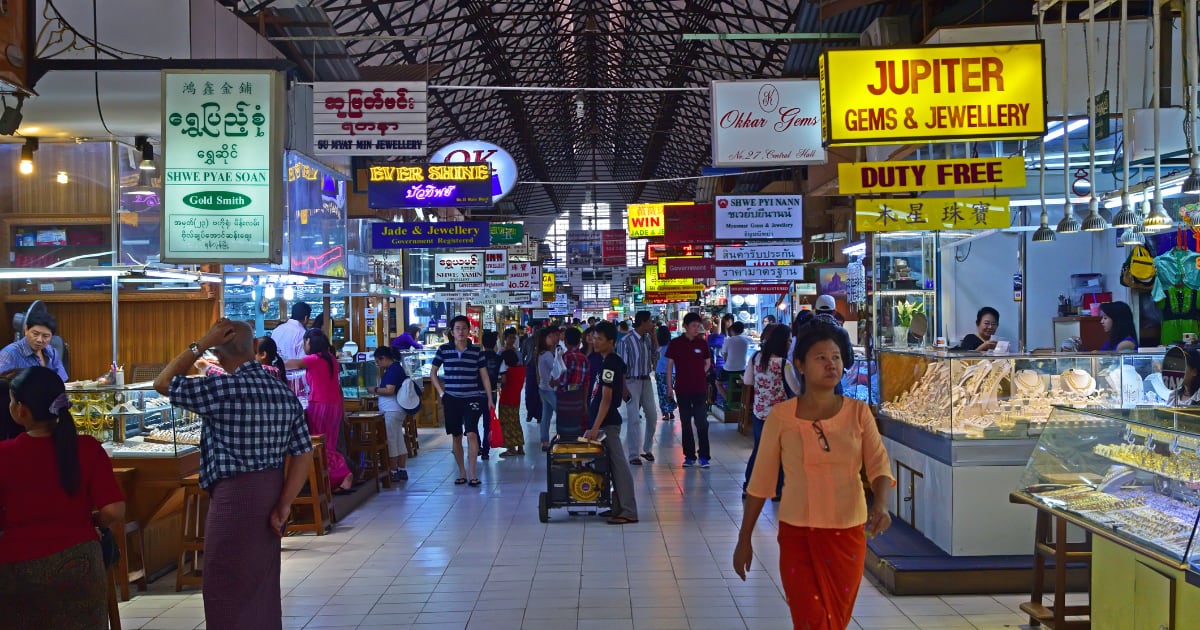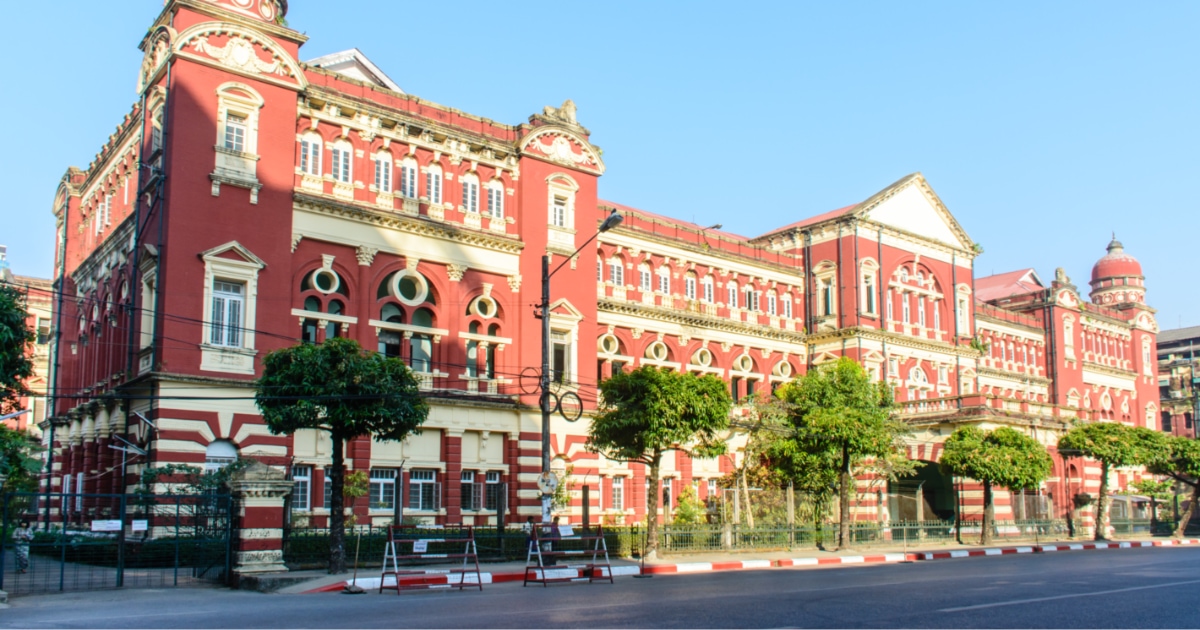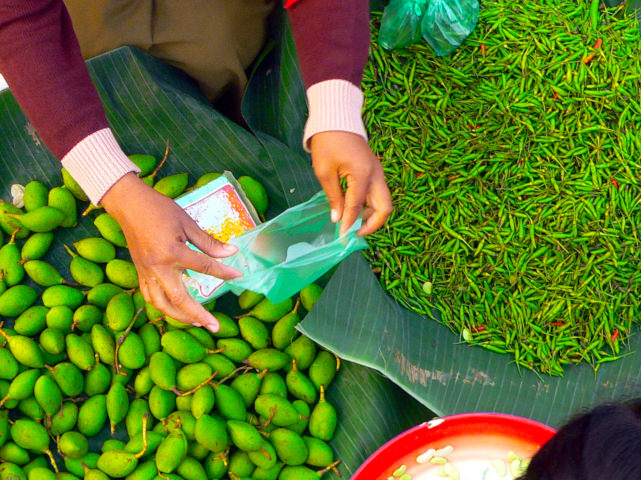Myanmar Highlights
November 2017
The Myanmar Government has made changes to Myanmar’s financial year which currently runs from 1 April to 31 March. The first new financial year will commence on 1 October 2018 and end on 30 September 2019. Accordingly, the new deadline for the filing of annual tax returns in the new financial year i.e. the 2018–2019 financial year will be 30 December 2019. The financial year of 2017–2018 will end on 30 March 2018. Annual tax returns for 2017 – 2018 are required to be lodged by 30 June 2018. The Government has yet to provide instructions in respect to the treatment and reporting of financial information for the six-month period from 31 March 2018 to 30 September 2018 (“Six Month Period”). The Government could require companies to file a second set of returns for the Six Month Period in December 2018 or alternative could extend the 2018–2019 financial period to 18 months lasting from 1 April 2018 to 30 September 2019. According to Deputy Minister U Maung Maung Win of Myanmar’s Ministry for Planning and Finance the main purpose for the change is to secure maximum consecutive dry months as monsoon season in Myanmar starts in June and ends in October. Securing consecutive dry months is beneficial to the operational flow of many sectors including tourism, agriculture, mining and forestry. (Source: https://www.irrawaddy.com/news/burma/amid-opposition-myanmar-amends-fiscal-year.html; 31 October 2017)
Myanmar Investment Commission approves construction of new China-backed industrial zone
The Myanmar Investment Commission (“MIC”) has approved the construction of a new industrial zone in Maubin Township, in the Ayeyarwady region. The Maubin Industrial Zone (“MIZ”) will be developed on 250 acres of land. Preliminary construction work commenced at the MIZ site in May 2017 although MIC permission was not officially granted until November. The MIZ is being developed at an initial cost of US$28 million; however, additional capital investment is expected to be required as the zone is further developed. A new project company has been established with China’s Shanghai Yangon Investment Company taking a 55% share and local companies Maupin Development Co. and Southern Middle Industry Co. taking a 30% a 15% share respectively. Construction of the MIZ is set to be completed before the end of 2020. The MIZ will focus on light manufacturing and will be able to accommodate up to 50 companies. (Source: https://www.mmtimes.com/news/new-china-backed-industrial-zone-being-constructed-ayeyarwady.html-0; 20 November 2017)
Myanmar’s Department of Civil Aviation cooperating with the International Civil Aviation Organization to ensure the sustainable development of the Myanmar aviation sector
Myanmar’s Department of Civil Aviation has announced it will cooperate with the International Civil Aviation Organization (“ICAO”) in relation to the sustainable development of the Myanmar’s aviation sector. The ICAO is a specialized agency of the United Nations which codifies the principles and techniques of international air navigation and fosters the planning and development of international air transport to ensure safe and orderly growth. In 2018 the ICAO will evaluate the Department of Civil Aviation under its Universal Safety Oversight Audit Programme (“USOAP”). The Department of Civil Aviation believes that pursuant to its satisfying USOAP criteria it will be in a position to lower aviation licensing fees, landing fees, and custom duties and improve aviation security. According to the Department of Civil Aviation, international air traffic to and from Myanmar increased by 15% in 2016, while there was an 8% increase in domestic air traffic. Passenger numbers are expected to increase from approximately 1 million in 2016 to 1.5 million in 2017. With passenger volume increasing, sustainable development is more important than ever for Myanmar’s aviation sector. (Source: https://www.mmbiztoday.com/articles/myanmar-develop-sustainable-aviation; 17 November 2017)
New Myanmar Investment Commission approved projects create 18,923 job opportunities
Investment projects approved by the Myanmar Investment Commission (“MIC”) in August and September 2017 are expected to create 18,923 new job opportunities. According to U Maung Maung Win, Deputy Minister of the Ministry of Planning and Finance ‘‘foreign direct investment is still at the crucial part in uplifting technology, capacity and job opportunities for the country. We are trying to create a good environment that helps investment…The ministry has estimated FDI in Myanmar will be approximately US$6 billion between 2016 and 2020 and US$8 billion between 2021 and 2025. The Ministry is further aiming to attract US$11 billion FDI annually between 2026 and 2030. 60% of FDI has been invested in projects located in the Yangon Region which is by far the most popular region in Myanmar for FDI, followed by the Mandalay Region. According to the DICA Singapore is the biggest investor in Myanmar, followed by China and Thailand. Total FDI in Myanmar was approximately US$8 billion in the year ending 31 March 2015, US$9.4 billion in the year ending 31 March 2016 and US$6.6 billion in the year ending 31 March 2017. FDI in the current fiscal year to date is approximately US$4.5 billion. MIC approved investment proposals worth approximately 1.49 trillion kyats (or approximately US$ 1.09 billion) from 58 local enterprises. Myanmar’s industrial sector accounts for over 35% of the total investment while the real estate sector accounts for 24% of FDI inflows. (Source: https://www.mmbiztoday.com/articles/19000-job-opportunities-created-investment-proposals; 17 November 2017, and http://news.xinhuanet.com/english/2017-11/17/c_136760056.htm; 17 November 2017)
TTCL Public Co. to construct US$2.5 billion coal-fired power plant in Karen State
The Thailand-based TTCL Public Company Limited (“TTCL”) will invest US$2.5 billion to develop a new coal-fired power plant in Karen State. Construction on the plant is expected to be completed by 2023 and be fully operational by 2024 and have a capacity of 1,280 megawatts (“MW”). The project is a joint-venture with the Myanmar Government with TTCL taking a majority 95% share and the Myanmar Government 5%. Myanmar has significant reserves of natural gas, but most existing offshore production is exported pursuant to the terms of production sharing agreements executed by previous Myanmar Governments. New natural gas blocks offshore Myanmar are being explored and new gas discoveries have been made but these not expected to reach production for at least another 2 – 3 years. Coal is therefore one of the efficient sources of power. In Myanmar, coal-fired power represents just 1% of Myanmar’s overall electricity production. A feasibility study on the environmental and social impact of the project will be completed before the end of 2017. This is second myanmar investment for TTCL after its first investment in Mon State, a coal-fired power plant constructed in 2013. Myanmar aims a more than fourfold increase in its electricity generation of over 23,500 MW by 2030 to meet rising demand. (Source: https://www.mmbiztoday.com/articles/25-billion-dollar-power-plant-boost-power; 16 November 2017)
Cambodia and Myanmar sign tourism MoU
Cambodia and Myanmar have entered a memorandum of understanding (“MoU”) to promote domestic and international tourism to the temples of Angkor in Siem Reap, Cambodia, and to the ancient city of Bagan in Myanmar respectively. The MoU was signed by Cambodian Tourism Minister Thong Khon and Myanmar’s Minister of Hotel and Tourism U Onh Maung at the of first International Cambodia Travel Mart which took place from the 17 – 19 November 2017 at the Sokha Hotel in Siem Reap. The MoU is intended to strengthen and promote tourism cooperation between both nations, as well as boosting the flow of tourists between Cambodia and Myanmar, and from third countries. (Source: http://www.mizzima.com/business-domestic/cambodia-and-myanmar-sign-mou-promote-tourism, 22 November 2017)
This newsletter is for information purposes only. Its contents do not constitute legal advice and it should not be regarded as a substitute for detailed advice in individual cases.
Transmission of this information is not intended to create and receipt does not constitute a lawyer-client relationship between Charltons and the user or browser.
Charltons is not responsible for any third party content which can be accessed through the website.
If you do not wish to receive this newsletter please let us know by emailing us at unsubscribe@charltonslaw.com








